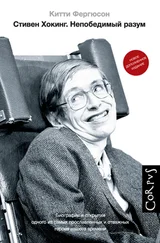Gray K. Moral Transformation: Good and Evil Turn the Weak into the Mighty // Social Psychology and Personality Science, 2010. Vol. 1. P. 253–258.
Fazio R., Effrein E., Falender V. Self-Perceptions Following Social Interaction // Journal of Personality and Social Psychology, 1981. Vol. 41. P. 232–242.
Gray K. Moral Transformation: Good and Evil Turn the Weak into the Mighty // Social Psychology and Personality Science, 2010. Vol. 1. P. 253–258.
Milgram S. Behavioral Study of Obedience // Journal of Abnormal Social Psychology, 1963. Vol. 67. P. 371–378.
Milgram S. Obedience to Authority: An Experimental View. New York: Harper & Row, 1974. P. 145–146.
Milgram S. Obedience to Authority: An Experimental View. New York: Harper & Row, 1974. P. 145–146.
Blass T. The Milgram Paradigm After 35 Years: Some Things We Now Know About Obedience to Authority // Journal of Applied Social Psychology, 1999. Vol. 29. P. 955–978.
Milgram S. Obedience to Authority: An Experimental View. New York: Harper & Row, 1974. P. 145–146.
Rolls E. et al. Representations of Pleasant and Painful Touch in the Human Orbitofrontal and Cingulate Cortices // Cerebral Cortex, 2003. Vol. 13. P. 308–317.
Wang J.-Y. et al. Morphine Modulation of Pain Processing in Medial and Lateral Pain Pathways // Molecular Pain, 2009. Vol. 5. Article 60.
Arntz A., Claassens L. The Meaning of Pain Influences Its Experienced Intensity // Pain, 2004. Vol. 109. P. 20–25.
Price D., Harkins S., Baker C. Sensory-Affective Relationships Among Different Types of Clinical and Experimental Pain // Pain, 1987. Vol. 28. P. 297–307.
Price D., Harkins S., Baker C. Sensory-Affective Relationships Among Different Types of Clinical and Experimental Pain // Pain, 1987. Vol. 28. P. 297–307.
Beecher H. Relationship of Significance of Wound to Pain Experienced // Journal of the American Medical Association, 1956. Vol. 161. P. 1609–1613.
Brown C. et al. Modulation of Pain Ratings by Expectation and Uncertainty: Behavioral Characteristics and Anticipatory Neural Correlates // Pain, 2008. Vol. 135. P. 240–250.
Basoglu M. et al. Psychological Preparedness for Trauma as a Protective Factor in Survivors of Torture // Psychological Medicine, 1997. Vol. 27. P. 1421–1433.
Gray K., Wegner D. The Sting of Intentional Pain // Psychological Science, 2008. Vol. 19. P. 1260–1262.
Fazio R., Effrein E., Falender V. Self-Perceptions Following Social Interaction // Journal of Personality and Social Psychology, 1981. Vol. 41. P. 232–242.
Litt M. Self-Efficacy and Perceived Control: Cognitive Mediators of Pain Tolerance // Journal of Personality and Social Psychology, 1988. Vol. 54. P. 149–160.
Thompson T. et al. Anxiety Sensitivity and Pain: Generalisability Across Noxious Stimuli // Pain, 2008. Vol. 134. P. 187–196.
Swart J. et al. Exercising with Reserve: Exercise Regulation by Perceived Exertion in Relation to Duration of Exercise and Knowledge of Endpoint // British Journal of Sports Medicine, 2009. Vol. 43. P. 775–781.
Meldrum M. a Capsule History of Pain Management // JAMA, 2003. Vol. 290. P. 2470–2475.
Croft P., Blyth F., van der Windt D. The Global Occurrence of Chronic Pain: An Introduction. New York: Oxford University Press, 2010. P. 9–18.
Henry D., Chiodo A., Yang W. Central Nervous System Reorganization in a Variety of Chronic Pain States: a Review // Physical Medicine and Rehabilitation, 2011. Vol. 3. P. 1116–1125.
Von Korff M. et al. Long-Term Opioid Therapy Reconsidered // Annals of Internal Medicine, 2011. Vol. 155. P. 325–328.
Weisenberg M., Tepper I., Schwarzwald J. Humor as a Cognitive Technique for Increasing Pain Tolerance // Pain, 1995. Vol. 63. P. 207–212.
Weisenberg M., Tepper I., Schwarzwald J. Humor as a Cognitive Technique for Increasing Pain Tolerance // Pain, 1995. Vol. 63. P. 207–212.
Weisenberg M., Tepper I., Schwarzwald J. Humor as a Cognitive Technique for Increasing Pain Tolerance // Pain, 1995. Vol. 63. P. 207–212.
Loggia M., Mogil J., Bushnell M. C. Experimentally Induced Mood Changes Preferentially Affect Pain Unpleasantness // The Journal of Pain, 2008. Vol. 9. P. 784–791.
Nagasako E., Oaklander A., Dworkin R. Congenital Insensitivity to Pain: An Update // Pain, 2003. Vol. 101. P. 213–219.
Wicksell R. et al. Can Exposure and Acceptance Strategies Improve Functioning and Life Satisfaction in People with Chronic Pain and Whiplash-Associated Disorders (WAD)? a Randomized Controlled Trial // Cognitive Behaviour Therapy, 2008. Vol. 37. P. 169–182; Vowles K. et al. Effects of Pain Acceptance and Pain Control Strategies on Physical Impairment in Individuals with Chronic Low Back Pain // Behavior Therapy, 2007. Vol. 38. P. 412–425; Dahl J., Wilson K., Nilsson A. Acceptance and Commitment Therapy and the Treatment of Persons at Risk for Long-Term Disability from Stress and Pain Syndromes: a Preliminary Randomized Trial // Behavior Therapy, 2004. Vol. 35. P. 785–801.
Hsu M. et al. Sustained Pain Reduction Through Affective Self-Awareness in Fibromyalgia: a Randomized Controlled Trial // Journal of General Internal Medicine, 2010. Vol. 25. P. 1064–1070.
Zeidan F. et al. Brain Mechanisms Supporting the Modulation of Pain by Mindfulness Meditation // The Journal of Neuroscience, 2011. Vol. 31. P. 5540–5548.
Brown J. et al. Effectiveness and Safety of Morphine Sulphate Extended Release Capsules in Patients with Chronic Moderate-to-Severe Pain in a Primary Care Setting // Journal of Pain Research, 2011. Vol. 4. P. 373–384.
Zeidan F. et al. Brain Mechanisms Supporting the Modulation of Pain by Mindfulness Meditation // The Journal of Neuroscience, 2011. Vol. 31. P. 5540–5548.
deCharms R. C. et al. Control over Brain Activation and Pain Learned by Using Real-Time Functional MRI // Proceedings of the National Academy of Sciences, 2005. Vol. 102. P. 18626–18631.
Kross E. et al. Social Rejection Shares Somatosensory Representations with Physical Pain // Proceedings of the National Academy of Sciences, 2011. Vol. 108. P. 6270–6275.
DeWall C. N. et al. Acetaminophen Reduces Social Pain: Behavioral and Neural Evidence // Psychological Science, 2010. Vol. 21. P. 931–937.
Daishonin N. Happiness in This World // The Writings of Nichiren Daishonin, Vol. 1. Japan: Soka Gakkai, 1999. P. 681.
Blackledge J., Hayes S. Emotion Regulation in Acceptance and Commitment Therapy // Psychotherapy in Practice, 2001. Vol. 57. P. 243–255.
Читать дальше
Конец ознакомительного отрывка
Купить книгу





![Рейчел Херц - Почему мы едим то, что едим [Наука о том, как наш мозг диктует нам, что есть]](/books/390411/rejchel-herc-pochemu-my-edim-to-chto-edim-nauka-o-t-thumb.webp)






